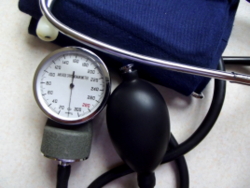 Researchers at DongShin University in Korea, have assessed the effectiveness of acupuncture for mild cognitive impairment (MCI), and found promising results. A total of 32 patients aged 55 to 85, and with MCI, were randomly assigned to one of four acupuncture treatment arms: a core group of acupuncture points for 30 minutes; core points for 20 minutes; core points plus an additional point; electrical stimulation of core points. Sessions were given three times a week for eight weeks.
Researchers at DongShin University in Korea, have assessed the effectiveness of acupuncture for mild cognitive impairment (MCI), and found promising results. A total of 32 patients aged 55 to 85, and with MCI, were randomly assigned to one of four acupuncture treatment arms: a core group of acupuncture points for 30 minutes; core points for 20 minutes; core points plus an additional point; electrical stimulation of core points. Sessions were given three times a week for eight weeks.
All four treatment arms were associated with beneficial effects on cognitive function, with the greatest effect coming from the core group of points when used for 30 minutes. The team recommends more rigorous clinical studies with a large sample size to validate these results.
(Factors contributing to cognitive improvement effects of acupuncture in patients with mild cognitive impairment: a pilot randomized controlled trial. Trials, 12 May 2021.)

 University researchers in Turkey have found that acupressure after gall bladder removal, reduces pain and speeds recovery. A total of 65 patients undergoing laparoscopic gall bladder removal, were randomly assigned to receive either acupressure at four designated points, or light-touch contact as a control. Acupressure was given for 12 minutes at 0, 4 and 8 hours following surgery.
University researchers in Turkey have found that acupressure after gall bladder removal, reduces pain and speeds recovery. A total of 65 patients undergoing laparoscopic gall bladder removal, were randomly assigned to receive either acupressure at four designated points, or light-touch contact as a control. Acupressure was given for 12 minutes at 0, 4 and 8 hours following surgery. 
